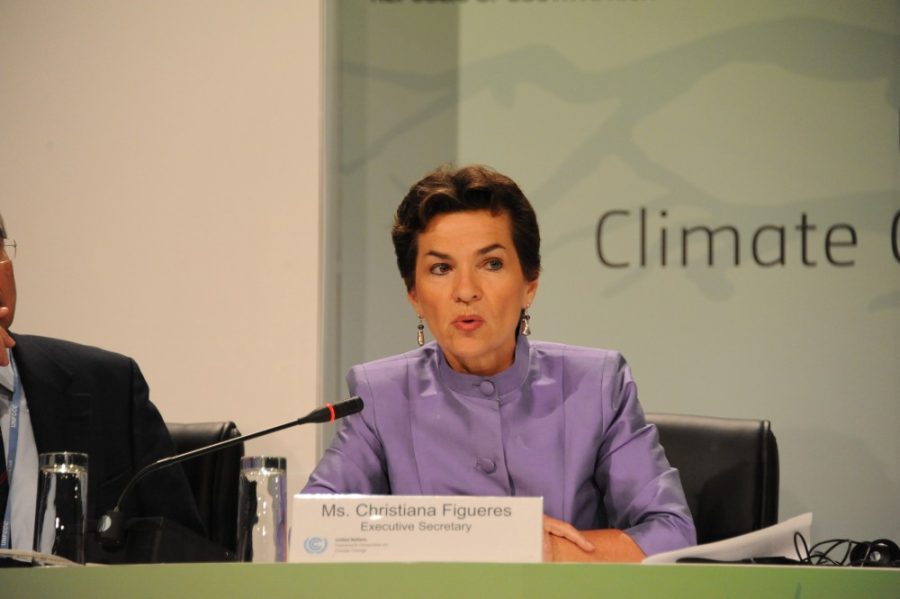Christiana Figueres, the Executive Secretary of the United Nations Framework Convention on Climate Change, announced her plans to step down from her post in July.
Figueres has served in the position for six years, most notably overseeing the talks in Paris this winter on climate change.
Figueres will most likely be succeeded by someone from a developed nation, like her predecessor Yvo de Boer, who was from the Netherlands.
Her successor will have their work cut out for them as they will be responsible for implementing the Paris agreement that Figueres successfully wrangled.
“Christiana Figueres was instrumental in getting the international climate change negotiations back on track after a disappointing outcome in Copenhagen [Denmark] in 2009, and helped set the stage for the successful agreement that was reached in Paris last year,” said Elizabeth Baldwin, an assistant professor in the UA School of Government and Public Policy. “Her leadership helped bring both developed and developing countries to agree to cut their greenhouse gas emissions.”
The Copenhagen talks were disappointing for a number of reasons, according to Baldwin. They notably ended in distrust between economically vulnerable countries and more developed powers like the U.S. The talks barely managed to define the scientific case for bounding temperature rises.
The Paris talks, meanwhile, were more successful as 195 nations agreed to shift from fossil fuels to cleaner energies with the ultimate goal of cutting greenhouse gas emissions to net zero by 2100.
The progress was due in large part to the work of Figueres, who focused heavily on building trust between nations with definitively different interests—from superpowers like the U.S. and China, to smaller island nations concerned with rising international waters.
Whoever follows in Figueres’ footsteps will need the diplomatic finesse to continue carrying out this ambitious agreement, while simultaneously convincing world leaders that expansion of the goals is necessary. Enforcing the agreement could prove difficult, as it is based entirely on voluntary commitments of countries.
Over the course of the next few months, countries will have the opportunity to name potential successors to Figueres, who will eventually be vetted by the U.N. Secretary General Ban Ki-Moon. He also elevated the post from the position of executive secretary to undersecretary general, which underscores the support for environmental issues that the secretary general has shown throughout his tenure. It also ensures the open position will likely attract top talent, given that its prestige has been elevated in the U.N. hierarchy.
In her publicly available resignation letter, Figueres stated, “the Paris Agreement is a historical achievement … it has been an honor to support you along this path over the past six years. We now move into a phase of urgent implementation. The journey that lies ahead will require continued determination, ingenuity and, above all, our collective sense of humanity and purpose. I know that together you will again rise to the task.”
Figueres’ resignation comes at a turning point for climate change negotiations. Not only do the Paris agreements need to be carried through, but other key figures have been resigning—like French foreign minister Laurent Fabius, the main host of the Paris summit. Only time will tell what the impact will be.
Follow Maddie Pickens on Twitter.









